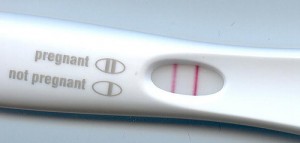in brief: egg-timer fertility test discredited
Popular fertility test, dubbed the ‘Egg-Timer’ has sparked rising and critical concern over its accuracy.
The test, created here in Australia by Adelaide clinic, Repromed in 2004, aims to measure the number of eggs a woman has and to predict the number of childbearing years she has left.
Leading fertility expert, Dr Anne Clarke, cited a recent British study as well as anecdotal evidence against the test, which uses blood samples as its main source of inquiry into a woman’s level of fertility. ‘I have big concerns about its accuracy’, Dr Clarke said. ‘I’m seeing a lot of women turning up at my clinic in an incredibly distressed state and highly depressed because the test showed they had no chance of having a baby. It’s wrong and misleading.’
The first reported study into the accuracy and effectiveness of the egg timer test was inconclusive. The study, which was held in Manchester, found that results varied in accuracy up to 60 per cent. A particular female patient did the test three times. Her second test result claimed that her egg reserve had increased by up to 30 per cent in just six weeks.
Findings also report that, not only is the test itself erroneous, but GP’s are also misinterpreting gathered results. European studies show that low levels of anti-mullerian hormone (AMH) in a woman do not necessarily mean that a woman cannot get pregnant. In their study, 88 women aged 25-40 were diagnosed with low ovarian reserves, but within five years, 57 of them had fallen pregnant and 40 per cent of them had done so naturally.



Great news. Glad to have this nice article here. Thank you so much for sharing such valuable information on fertility tests.